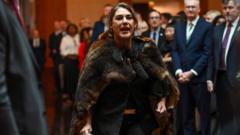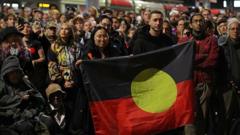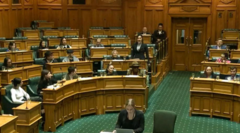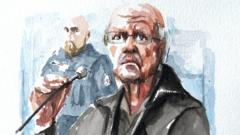Senator Lidia Thorpe's heckling of King Charles during his visit to Canberra has led to her censure by Australian lawmakers, igniting a debate on colonial legacy and Indigenous rights. While her protest received mixed reactions, it highlights ongoing disparities faced by Aboriginal Australians.
Australia’s Lidia Thorpe Faces Censure for Heckling King Charles

Australia’s Lidia Thorpe Faces Censure for Heckling King Charles
The Australian Senate has voted to censure Senator Lidia Thorpe after her controversial protest during King Charles's visit, reflecting deep divisions about the legacy of colonialism.
Senator Lidia Thorpe, representing her Aboriginal constituents, found herself at the center of a political storm after heckling King Charles during his recent visit to Canberra. The Australian Senate voted overwhelmingly, 46-12, to censure Thorpe, whose shouts of "you are not my King" and "this is not your land" aimed to draw attention to the historical impact of British colonisation on Australia's Indigenous peoples.
The censure, described as a display of "profound disapproval," is a symbolic action and does not carry any constitutional weight. Following the vote, Thorpe stated she was denied an opportunity to respond in the chamber due to a flight delay, asserting, "The British Crown committed heinous crimes against the first peoples of this country... I will not be silent."
Thorpe's protest, while met with criticism from various political factions and some Aboriginal leaders, found support among activists citing the need to confront ongoing inequalities faced by Indigenous Australians. These disparities include significant gaps in health, education, and wealth compared to non-Indigenous populations.
During King Charles's five-day tour, which included a warm reception from the public, Prime Minister Anthony Albanese praised the monarch for showing respect to Australians amid constitutional debates. However, the censure of Thorpe has opened up new discussions about the relationship between Australia's Aboriginal population and the British monarchy, reminiscent of rhetoric from her swearing-in ceremony in 2022, where she labeled Queen Elizabeth II a coloniser.
Last year's failed referendum aimed at recognizing Aboriginal and Torres Strait Islander peoples in the constitution also looms large, highlighting unresolved tensions over representation and rights. With Thorpe leading the charge against what she termed a tokenistic approach, it is evident that the conversation about the true recognition and rights of Indigenous Australians remains at the forefront of Australian politics.





















